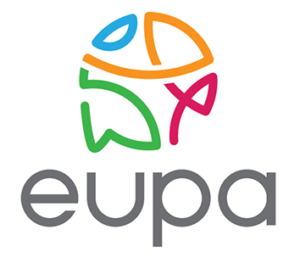The United Nations General Assembly established the World Day of Social Justice in 2007 through the adoption of a resolution n A/RES/62/10, placing the promotion of social justice for all at the heart of the UN’s global mission to promote development and human dignity. The international day serves as an annual opportunity to raise awareness for the protection of human rights, equality and to challenge discrimination of any form or shape. It also aims to celebrate the UN’s efforts to promote social justice, already remarked in the 2030 Agenda for Sustainable Development and the 17 Sustainable Development Goals. As we commemorate the World Day of Social Justice today, it is crucial to reflect on the current state of social justice and the deep-seated inequalities that still exist in our society.
Existing inequalities and new challenges
The concept of social justice is complex and multifaceted, encompassing a wide range of issues relating to the equal distribution and access of resources, opportunities, and rights within a society. The fundamental principle of social justice is rooted in the fact that every human being regardless of their race, gender, sexual orientation, and socioeconomic status deserves to be treated with dignity and respect and should have equal access to resources, opportunities, and rights.
In times of crisis however, social justice is at risk. Crises not only create new inequalities, they often exacerbate already existing ones, affecting the most vulnerable and marginalised in society. Today, the world faces a multitude of conflicts and crises, ranging from ongoing wars and violence in several regions to humanitarian emergencies and environmental disasters, and their consequences often persist long after they have ended. Ongoing conflicts around the world have caused devastating humanitarian consequences, including mass displacement and loss of basic rights and services for millions of people, climate change-related natural disasters such as floods and droughts have led to loss of livelihoods and resources for many, particularly those in vulnerable regions, and the Covid-19 pandemic has highlighted existing inequalities and disparities around the world with marginalised communities being disproportionately affected by the virus due to limited access to healthcare and other essential resources as well as a loss of economic opportunities.
Forced displacement has a significant impact on social justice. The disruption of communities and loss of personal belongings and livelihoods can have far-reaching effects on the basic rights and well-being of displaced individuals, and they often face unique obstacles and disparities when trying to integrate into a new society. The lack of legal rights and protections, especially for those individuals who are undocumented, increases the risk of exploitation and abuse and makes it harder for them to access basic services. The discrimination they might face based on their race, ethnicity, religion, and national origin can also make it more difficult for them to access essential services including education, housing, health care, and employment opportunities. The lack of access to rights, services, and opportunities in turn creates a barrier to fully integrate into society and further perpetuate the existing cycle of inequality.
Inclusive and equitable society
In light of these ongoing crises, it is important for society to work towards creating a more welcoming, inclusive, and equitable society where every individual has the equal opportunity to succeed and thrive. This will require systemic change and a commitment from individuals, communities and state and non-state actors. Such change should involve pushing for policy changes and laws that address systemic inequalities including equal pay for equal work and anti-discrimination laws as well as increasing representation and diversity in decision-making bodies. Education and awareness-raising initiatives can also help to challenge and change certain beliefs and narratives by educating ourselves and others about social justice issues, recognizing our own privileges and biases, and actively challenging them on a daily basis. Such solutions help support the most vulnerable and marginalised communities, taking into account the rights and needs of individuals and communities, and create a more welcoming and inclusive society that respects and accepts the diversity of its members.
Final considerations
MOAS promotes social justice by providing life-saving aid to people in need, regardless of their race, ethnicity, or national origin. By working to meet the basic needs of vulnerable populations, MOAS helps to ensure that everyone has access to the necessities of life, such as food, water, and medical care. In addition, MOAS works to raise awareness about the plight of migrants and refugees and to advocate for better policies and protections for these groups. Through its work, MOAS plays a crucial role in promoting social justice and human dignity by highlighting the need for a more equitable and just world. By providing aid to those in need and advocating for better policies and protections, MOAS helps to ensure that everyone has access to the basic necessities of life and is treated with dignity and respect.
If you are interested in the work of MOAS and our partners, please follow us on social media, sign up to our newsletter and share our content. You can also reach out to us any time via [email protected]. If you want to support our operations, please give what you can at www.moas.eu/donate.


